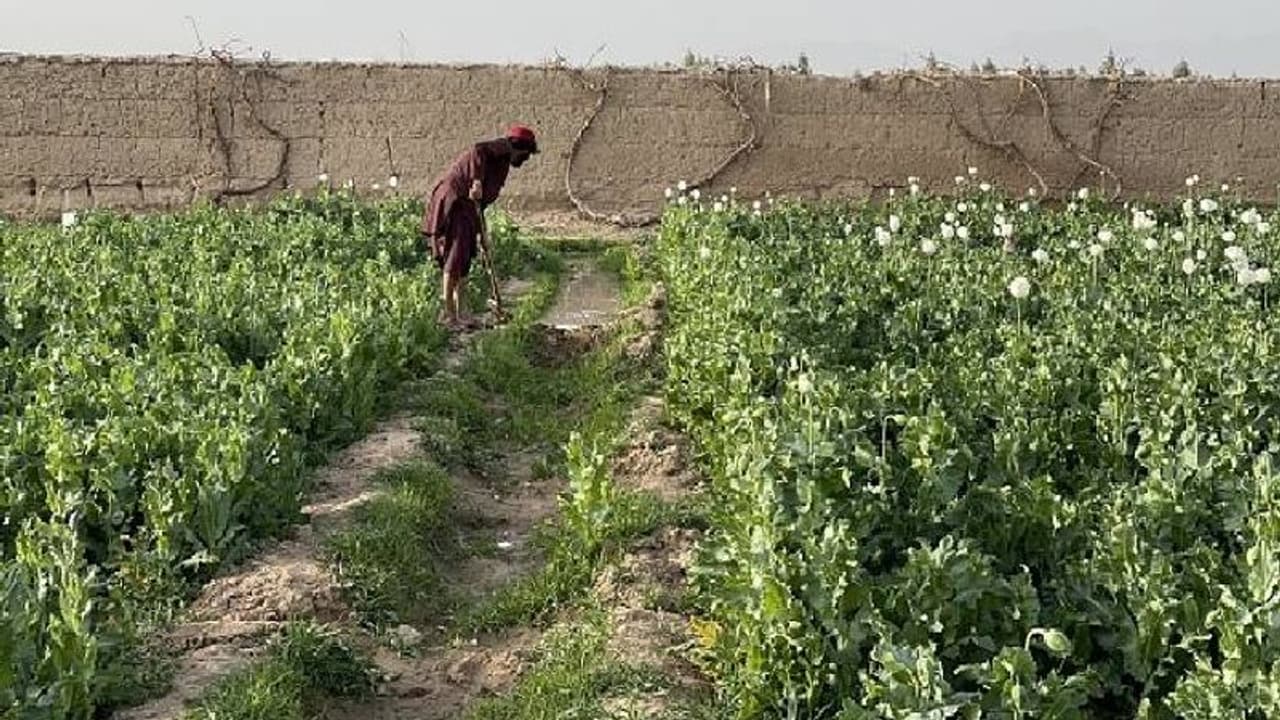After regaining control over Afghanistan about nine months ago, the Taliban was under immense pressure from its neighbouring countries, including Russia, China, and Iran to put a complete ban on its harvest.
The Taliban rulers of Afghanistan recently announced a ban on the cultivation of drugs, including opium, in the country. To note, Afghanistan accounts for around 90 per cent of global production. On the direction of its supreme leader, the interim government being run by the Taliban also stated that anyone found violating the orders will be dealt with under Islamic law.

Taliban spokesperson said that the cultivators will be sent to jail and their crops burned if they cultivate poppy.
Why was opium and poppy cultivation banned?
After regaining control over Afghanistan about nine months ago, the Taliban was under immense pressure from its neighbouring countries, including Russia, China, and Iran to put a complete ban on its harvest.
Talibani leadership is of the opinion that agreeing to the demands of these countries would help in getting the recognition at international level. Recently, Russian officials and Chinese foreign minister Wang Yi had visited the country and held talks with the Taliban government.
It has been learnt that Beijing had promised to invest in sectors like healthcare and mining and also provide financial support to the cash-starved country. Wang Yi had also asked the Taliban to act against the East Turkistan Islamic Movement.
How will poppy cultivation impact Afghanistan?
In its report released in November last year, the United Nations Office on Drugs and Crimes found that the cultivation of poppy rose by 8 per cent in 2021 to 6,800 tonnes against last year. The UNODC had cautioned that the global markets could be flooded with around 320 tonnes of pure heroin trafficked from the country.
The farmers have shifted to opium poppy cultivation after the country's economic conditions deteriorated in a bid they would get more revenue from the traditional cultivation of wheat and other food grains.
UNODC findings stated that the income from Afghanistan's opiates amounted to $1.8-2.7 billion in 2021 in the country. They earn much larger profits in supplying illicit drugs outside Afghanistan.
In view of banning opium cultivation, Deputy Prime Minister Abdul Salam Hanafi has requested the international community's assistance in helping find alternative businesses for farmers.
Prior to this ban, the Taliban had slapped a similar restriction on the trade of opium in 1997. It was lifted after the Taliban was thrown out of power in 2001 by the United States and its allies.
After poppy, what next?
Taliban leaders have said that the use of wine and the trade, processing and smuggling of drugs including heroin, sheesha, tablets, hashish, and other prohibited items would be banned in the next phase.
Also Read: Taliban ban women from boarding flights without male companions
Also Read: Taliban orders shutting down of secondary girl schools in Afghanistan just hours after reopening
